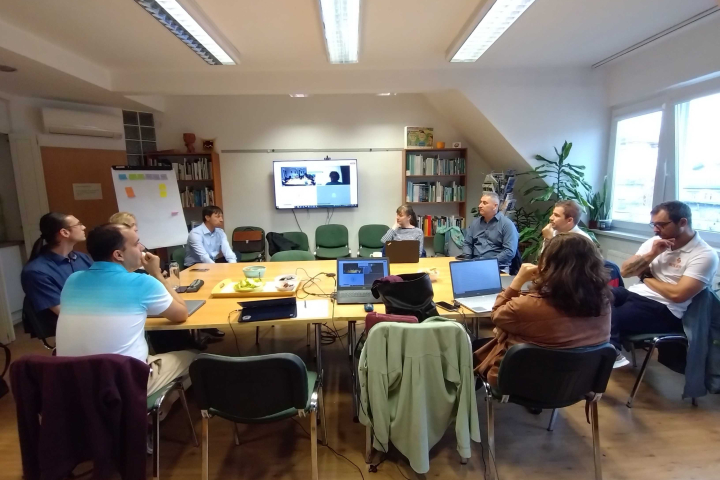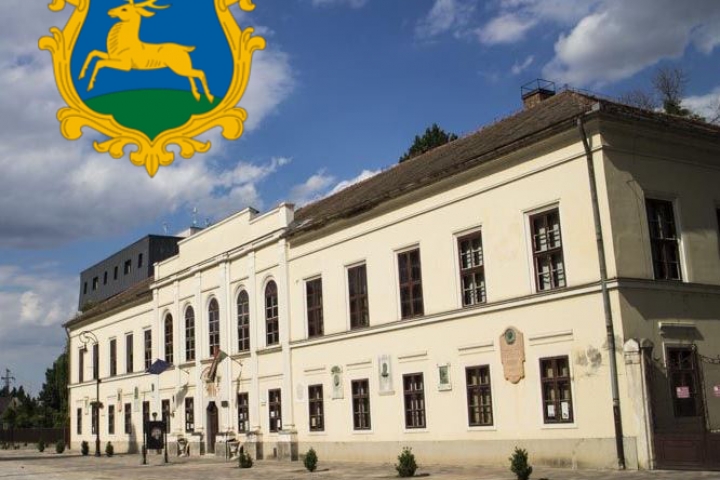Fifth Meeting of the Hungarian EU Peers Community
The fifth meeting of Hungarian one-stop shop (OSS) renovation advisors took place on 9 May, organised by Energiaklub. Fourteen participants joined the experience-sharing session, including three advisors specialising in the renovation of single-family homes, three focusing on apartment buildings, and several companies providing financial consultation, international project assistance, or research support to OSS service providers.
Since the single-family and multi-apartment segments significantly differ in Hungary, the first half of the meeting focused on OSS advisors working with single-family homes, while the final part was dedicated to those advising on multi-apartment building renovations. In the single-family segment, participants discussed the details of the updated Energy Efficiency Home Renovation Programme (OFP) and the newly launched Rural Home Renovation Support Scheme, both introduced earlier this year - exploring in which cases each programme is the best suited for different types of modernisation. The most difficult conditions to meet in the Energy Efficiency OFP include having no overdue debts (currently or previously), providing 14% own financial contribution, and taking out a mandatory 12-year loan. Only around 10% of applicants meet this criteria. Checking eligibility is time-consuming, as many clients lack digital skills. Moreover, people are often reluctant to pay for pre-certification and energy efficiency calculations, as they feel these do not yet provide tangible results. Practical experts highlighted that designated banks are not always cooperative - the required documentation depends on the individual administrator, and many bank clerks are not motivated to promote this loan scheme, preferring to offer their own bank’s products instead. The evaluation process often drags on from the expected 60 days to 3-4 months. In municipalities with fewer than 5,000 inhabitants, two renovation support schemes are available, yet the nearest bank is often 40–50 km away. It would be important for the programme’s organisers to clarify eligibility in the initial communication to avoid unnecessary consultations. Under the Rural Home Renovation Support, many energy-poor households are eligible - often facing not only energy efficiency issues but also structural problems. On the other hand, it can be difficult to convince people, given Hungary’s relatively low utility costs, that it is wiser to invest this funding into energy upgrades rather than bathroom or kitchen renovations.
With the amendments to the Energy Efficiency Act, the obligations under the Energy Efficiency Obligation System (EEOS) have become stricter, and the price of Certified Energy Savings (HEM) is expected to rise, which could benefit the renovation market. However, free attic insulation projects still generate a large number of HEMs, putting downward pressure on prices. According to experts, the current 10% investment inspection rate has not been sufficient to eliminate unqualified contractors. It is said that State Secretary Csaba Gondola, responsible for the EEOS, has promised to reduce the number of overpriced measures (e.g. attic insulation). Under the new law, the largest obliged entities (such as MVM and E.ON) must now provide energy efficiency consultancy to their customers, though no information is yet available about how this will be implemented.
Participants discussed the idea of launching a joint social awareness campaign, as many citizens remain unaware of the long-term benefits of energy efficiency. A professional marketing expert should be engaged to deliver messages that reach a wide audience. Hungarian EU Peers members could operate under the name RenoMentor Network, bringing together qualified advisors. However, questions remain about who is allowed to place a public-interest advertisement and whether such campaigns would cost less than regular advertising. István Gulyás (MCsTE) spent nine weeks discussing renovation topics on Manna FM’s “Real Women” radio programme, which received very positive feedback. Participants agreed it would be worthwhile to form a work group - including MCsTE, Soler, and Energiaklub, with others also welcome - to explore further steps. Building material manufacturers could also support the initiative, but to maintain independence, it is important they do not appear explicitly.
After reviewing the latest updates regarding the EU Peers initiative, Ilona Illésné Szécsi, the leader of the project in Hungary, presented MEHI’s recommendations to policymakers for maintaining a national, efficient network of one-stop shop advisors. The majority of attendees agreed with these proposals. It was also suggested that the RenoMentor Network could establish an association to strengthen its advocacy efforts.
In the section dedicated to multi-apartment renovation advisors, Ada Ámon, Director of the Budapest Climate Agency (BKÜ), presented details of the planned Budapest Green Panel Programme (BZP). The programme, divided into pre-screening, project preparation, and implementation phases, has been approved by the Budapest City Council, with eight districts joining the financing effort. Unfortunately, the Municipal Assembly questioned the proposed 30% non-refundable grant rate, suggesting 50% instead - which would place greater strain on both the city’s and districts’ budgets. Banks also oppose this change, as it would result in fewer loans being issued. At the same time, the Climate Agency was stripped of its coordination role, which was transferred to Budapest Utilities (BKM) - a large, bureaucratic organisation - putting at risk the programme’s swift and efficient execution. It would be preferable for BKÜ to retain management of the BZP, as it has additional plans for renovating other types of buildings across the city of Budapest and advancing heating system decarbonisation - an area that Főtáv, the district heating company under BKM, is unlikely to be able to comprehensively implement.








